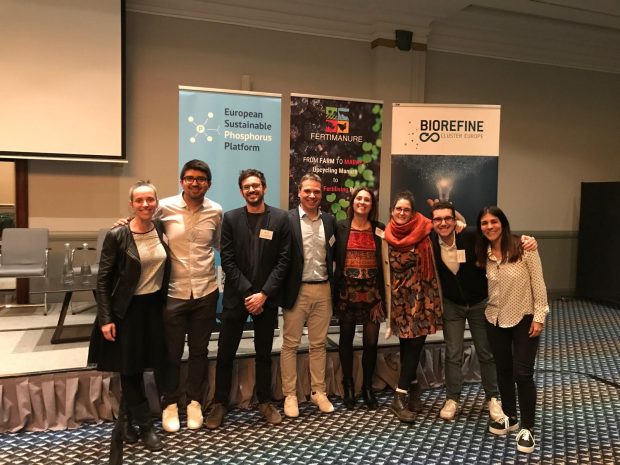CT BETA at NERM Sustainable Nutrient Management Conference with strong presence
On this occasion, the NERM has served to present the most recent research and innovation in the field of efficient and sustainable nutrient management

A large representation of the UVic-UCC BETA Technology Center traveled this week to Brussels to participate in the NERM Conference (Nutrients in Europe Research Meeting), a benchmark event in the field of sustainable nutrient management promoted by the European Sustainable Phosphorous Platform (ESPP). For the organization of this edition, the ESPP has had the direct support of the FERTIMANURE project, coordinated by CT BETA, as well as of SEA2LAND, in which the center also participates as a partner, and three other H2020 projects that be financed in the same call as FERTIMANURE and SEA2LAND.
On this occasion, the NERM has served to present the most recent research and innovation in the field of efficient and sustainable nutrient management, giving rise to a debate on the immediate challenges and short-term future needs on a European scale. The topics that have been discussed have ranged from nutrient recovery technologies, the production of new types of fertilizers, and the quality and application of secondary fertilizers, to the acceptance of these new products by the sector and its competitiveness in the market.
The NERM has had the participation of 140 people, including relevant European research entities, leading fertilizer companies, as well as several members of the European Commission. One of the outstanding interventions was that of Laia Llenas, deputy director of CT BETA, to present the main results and conclusions of the FERTIMANURE project. With funding from the H2020 Program, FERTIMANURE has worked to establish five biorefineries that use nutrient recovery technologies to produce bio-based fertilizer products. Nagore Guerra, from CT BETA, was also able to present in detail the Catalan biorefinery that was implemented at the Cal Ros farm of the Cooperative Plana de Vic. This project has already made it possible to demonstrate that, in terms of their agronomic potential, these bio-based fertilizers obtained from the valorization of livestock droppings have the same potential as the reference synthetic options that are currently used.
In addition, FERTIMANURE has also carried out a detailed analysis of the operational limitations to apply this type of process on a real scale, with the aim of making a series of proposals on how to implement this business model of a sustainable and profitable way. For this reason, part of the work done since the project has also focused on understanding the preferences of potential consumers, to identify the importance of factors such as price, the content of organic matter, the risk of infection or the speed of ‘release of nutrients. FERTIMANURE was also present in several parallel NERM sessions, led by researcher Nagore Guerra, as well as NUTRIBUDGET, a project focused on the optimization of regional nutrient balances that was represented by Laura Díaz, from CT BETA
On the other hand, Sergio Ponsá, director of the CT BETA, was part of one of the plenary sessions of the conference, in this case to provide a broader view on the current challenges of nutrient recovery technologies and the factors that are limiting their adoption by the livestock and agricultural sectors. CT BETA researchers Daniel Egas also participated in the plenary sessions, in a round table on the market value of bio-based fertilizer products, and Victor Carbajal, presenting the work done from the NUTRI-KNOW project to facilitate the exchange of knowledge related to the field of nutrient management.
